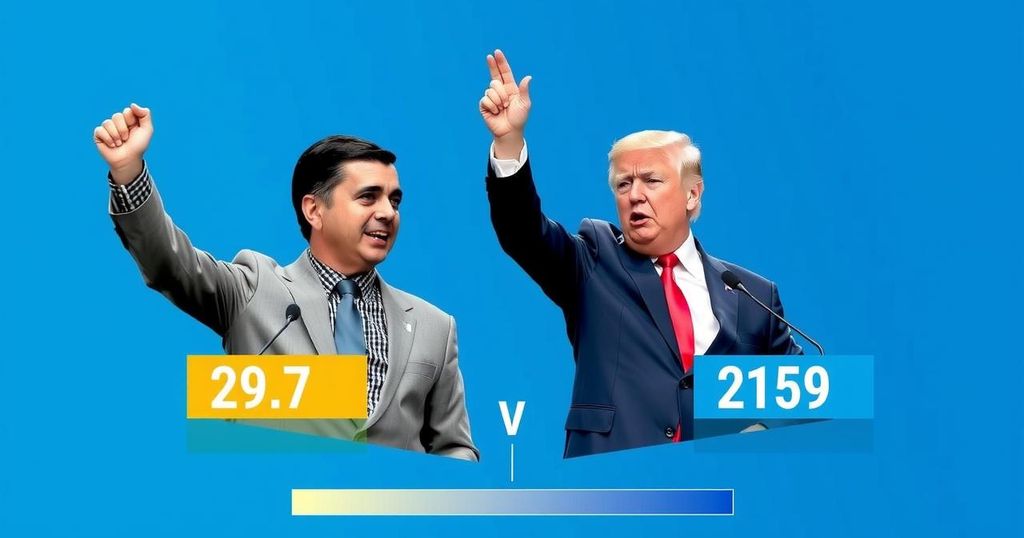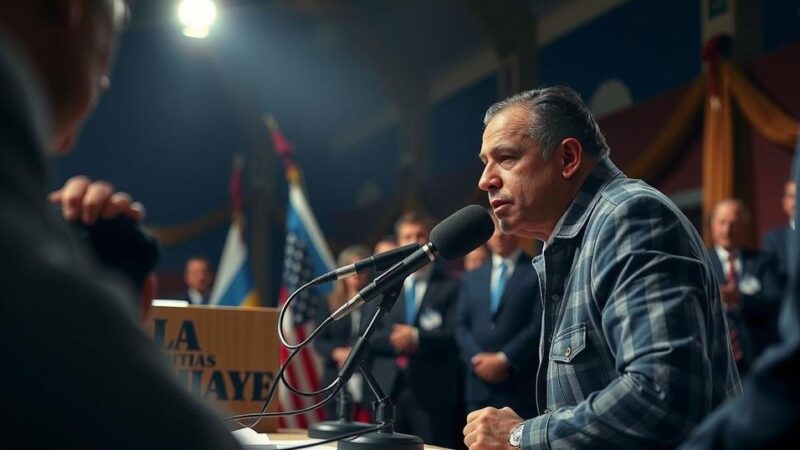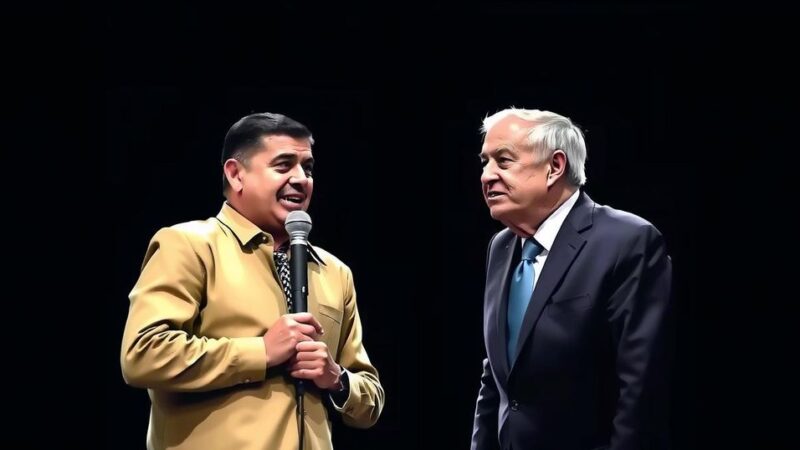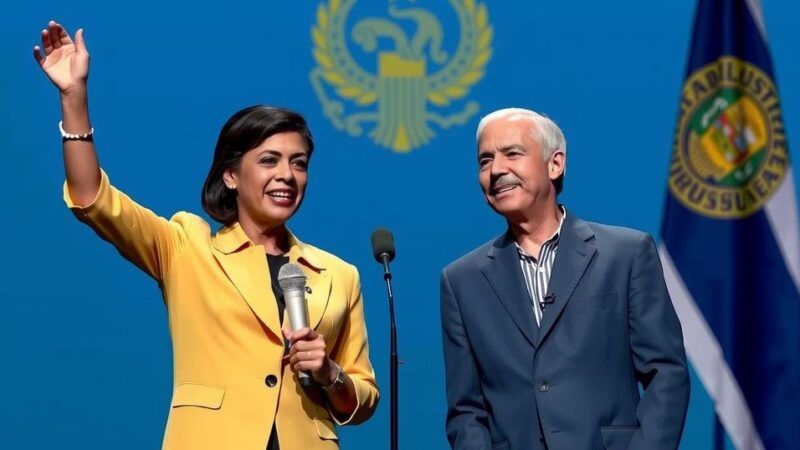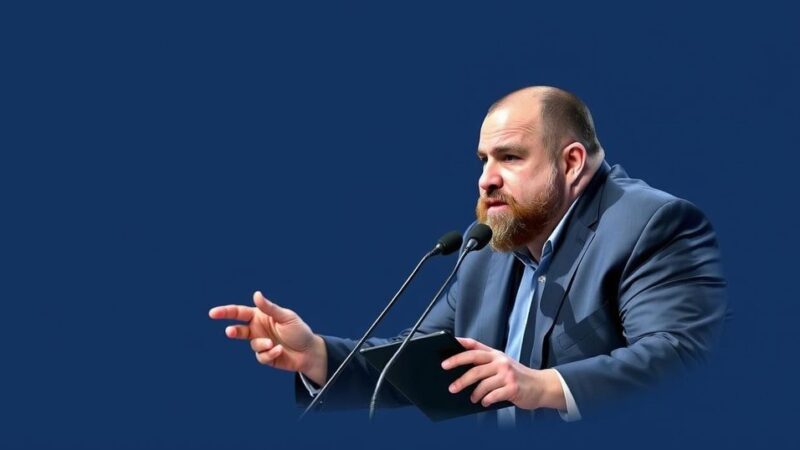Uruguay’s presidential runoff features intense competition between Álvaro Delgado and Yamandú Orsi, with Delgado aiming to maintain the center-right policies of his predecessor and Orsi revitalizing a leftist agenda. Economic stability and rising crime are central issues, amid a backdrop of voter apathy towards campaign strategies. The election is indicative of Uruguay’s strong democratic principles despite populist trends elsewhere in Latin America.
Uruguayans participated in a high-stakes presidential runoff election on Sunday, marking a significant shift from the previous election’s predictability. The contest features Álvaro Delgado from the conservative ruling party against Yamandú Orsi of the left-leaning Broad Front. After the first round of voting, where the Broad Front received 44% and the National Party 27%, this runoff represents a closely contested scenario due to the consolidation of conservative votes from allied parties.
Delgado, the incumbent party’s candidate, is pursuing the legacy of outgoing President Luis Lacalle Pou, whose administration has enjoyed robust support owing to a stable economy and declining inflation. Conversely, Orsi, a former mayor, aims to revive the Broad Front’s ideals, advocating for a socially progressive agenda with no radical transformations planned. As both candidates strive to resonate with voters unsettled by a rise in crime, their contrasting approaches reflect broader societal expectations and concerns.
Amid this electoral tension, analysts note a lack of populist fervor typically seen elsewhere in the region, attributing it to Uruguay’s historical stability and mature democratic processes. The candidates seek to address crucial issues, including crime and economic inequalities, which have increasingly shaped voter priorities, despite a backdrop of general apathy towards their campaigns.
The recent elections in Uruguay have showcased a competitive political landscape, reflecting the growing tension between conservative governance and progressive ideals. In the first round of voting, no candidate obtained a decisive majority, necessitating a runoff between the leading contenders. Analysts point out that historical factors, such as the previous government’s social reforms and the nation’s relative economic stability, have made this election significant for the future direction of the country. With concerns over governance structures and social issues at the forefront, the election has generated heightened interest and debate.
In conclusion, Uruguay’s presidential runoff presents a pivotal moment in the nation’s political trajectory. With Álvaro Delgado representing continuity amid a favorable economic outlook and Yamandú Orsi advocating for progressive change, voters must navigate complex issues of governance and social policy. The election serves as a testament to Uruguay’s democratic resilience, highlighting both candidates’ efforts to connect with an electorate facing pressing concerns over crime and inequality.
Original Source: www.voanews.com
